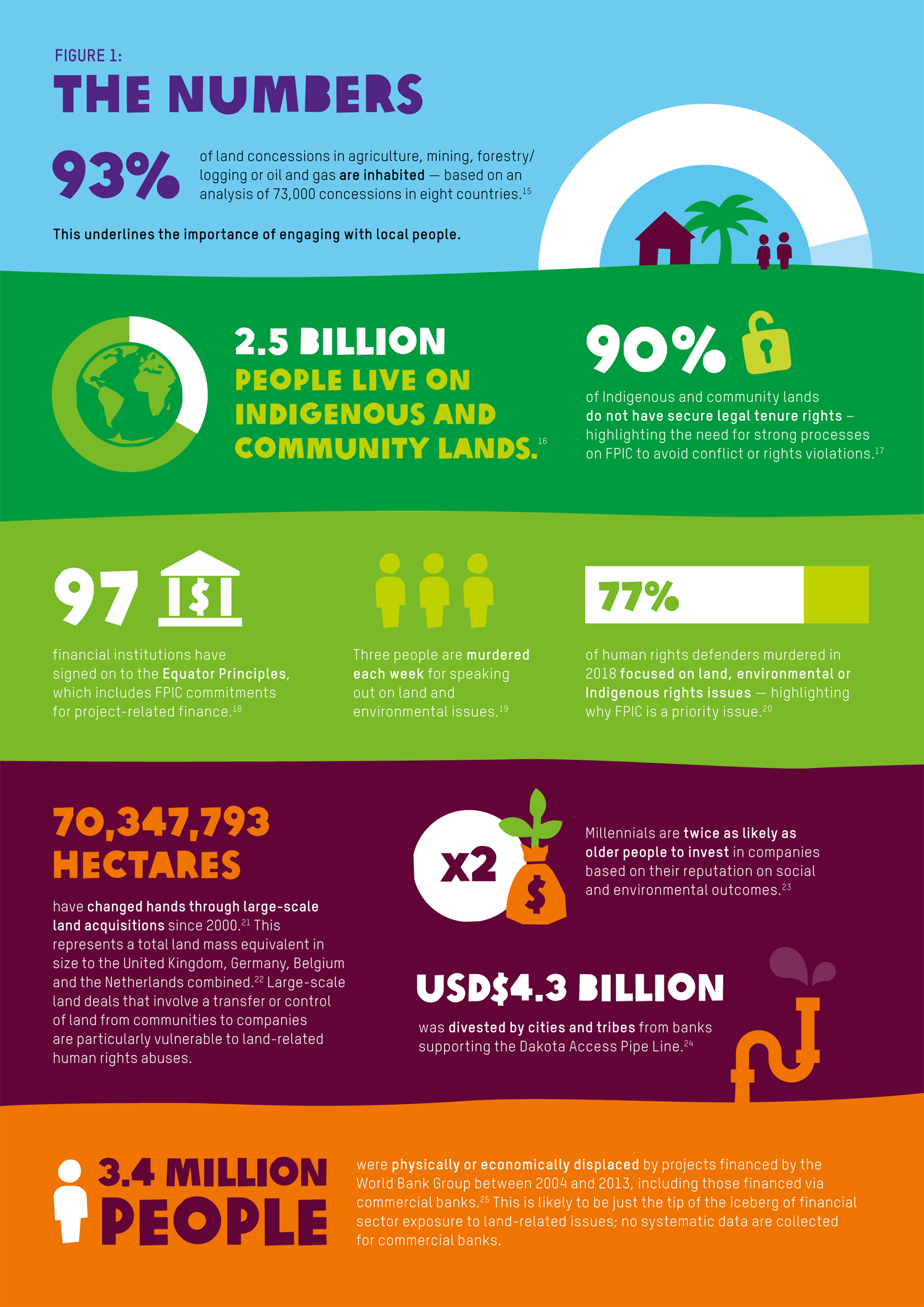Banks must stand with Indigenous and local communities in respecting their land rights
In 2018, every week more than three people were murdered, defending their land and environment from destructive industries like mining, logging and agribusiness. These killings represent the extreme end of a spectrum of violence and threats directed at land rights defenders.
Today Oxfam has published a new report on why, and even more important, how banks need to act on free, prior and informed consent (FPIC). Our report argues that the effective implementation of FPIC can help prevent and safeguard against different risks including violence and threats.
The most critical barrier on FPIC is that Indigenous peoples and other local communities have no way of finding out who is financing projects linked to their lands, forests and waters. As financiers of many of these projects, banks have a responsibility to uphold Indigenous peoples’ FPIC rights and therefore transparency is a prerequisite for the full realization of FPIC.
As the report shows, the call for banks to respect FPIC comes from increasingly unified Indigenous, human rights, women’s rights and climate movements working on a diverse array of campaigns. Free, Prior and Informed Consent is a right for Indigenous Peoples under international law, and it is also a best practice principle that applies to all communities affected by projects or activities on the land, water and forests that they rely on.
This paper provides clear direction for banks who truly seek to respect the rights of indigenous peoples. It points toward the urgent need for banks to design their internal processes with the understanding that indigenous communities have a right to withhold their consent as set forth in international human rights law.
Human rights — whose responsibility?
- Carla Fredericks, First Peoples Worldwide
Until recently, most banks argued that they themselves are not ultimately responsible for ensuring that their financing, or related operations, comply with human rights standards — including the right to free, prior and informed consent — but that it is their clients who bear sole responsibility for obtaining the FPIC of affected communities. Luckily, we see a shift, where banks are taking more responsibility.
The Equator Principles — a framework for determining, assessing and managing environmental and social risk in projects, adopted by over 100 financial institutions — are currently in review.
Oxfam and several other groups have called the Equator Principles to better reflect international standards establishing clear requirements and expectations for their members and their clients in terms of transparency and disclosure of project-related information, the realization of FPIC, and the implementation of effective grievance mechanism.
Although the current draft of the EP4 put forward for consultation falls short of any expectations, we hope that this new Oxfam report helps them to reconsider their approach to FPIC.

The importance of free, prior, informed consent — in numbers.
Ensuring communities benefit from development
Removal from the place one is dependent on for livelihood nearly always goes with dissent and the accompanied social unrest. Banks need to know not only the financial, but also the human risks of the projects and companies they invest in and be transparent and take responsibilities herein. This paper shows how this can be done.
— Gine Zwart, Coordinator, Fair Finance Guide International.
Time and again, we have documented appalling cases where communities who should benefit from development are instead suffering eviction, human rights abuses or destruction of the forests and lands they rely on for their livelihoods. Banks have a duty to respect people’s rights, and a crucial first step is to ensure communities know about projects and can influence the developments that affect their lives.
— Kate Geary, Co-Director, Bank Information Centre Europe.
This blog originally appeared on Medium and is cross-posted here with the permission of the author.


